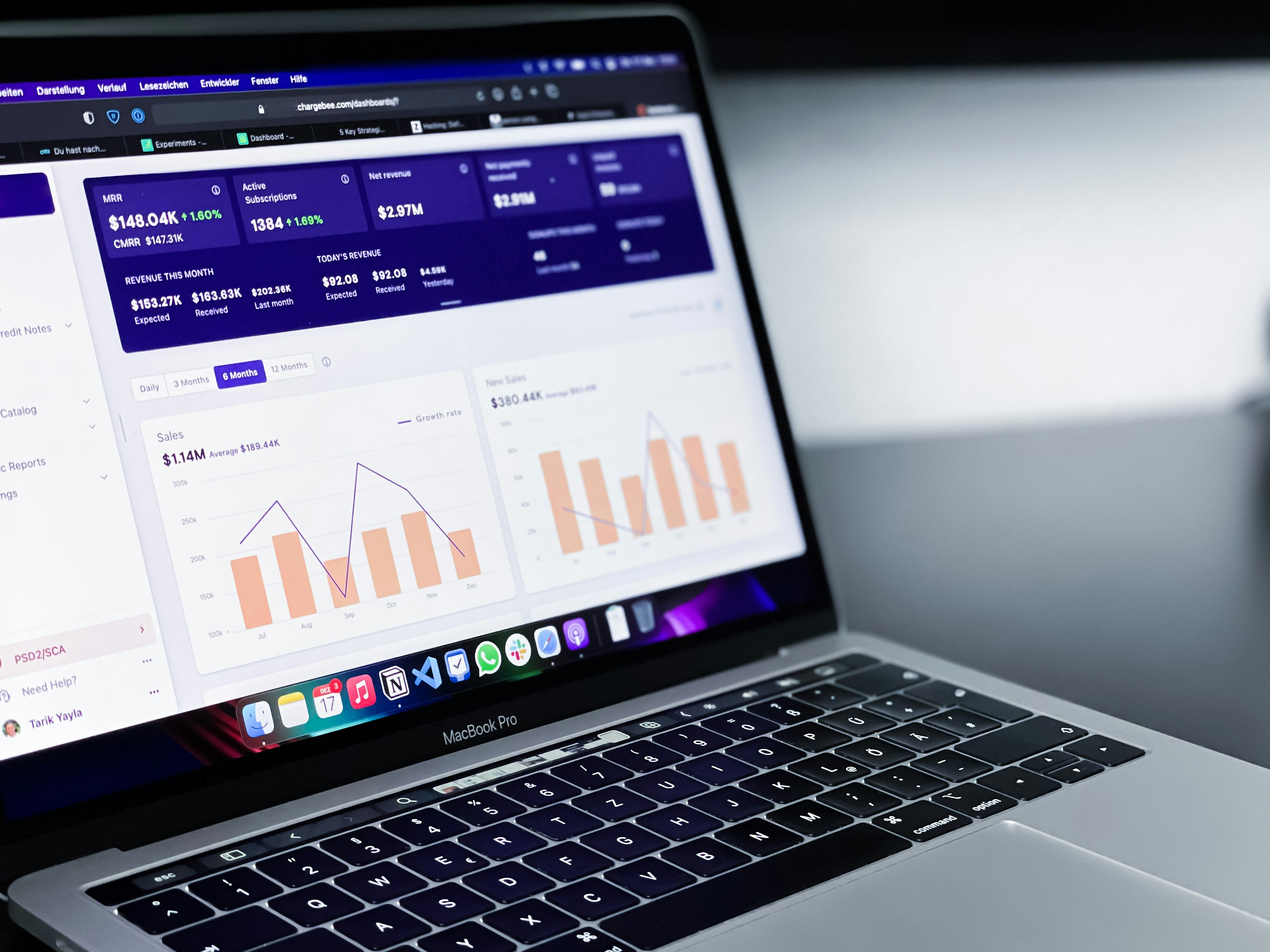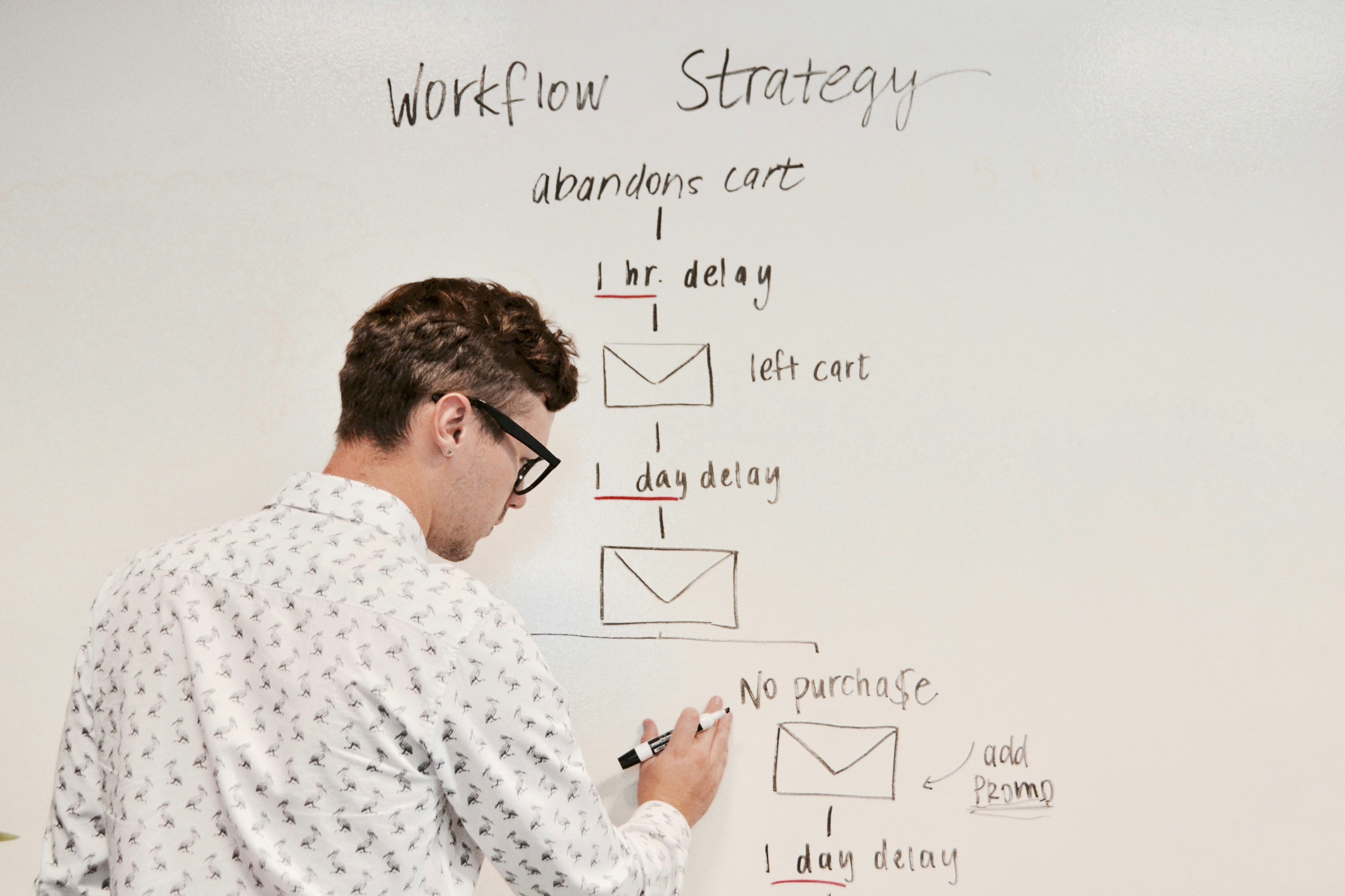Customer segmentation analysis is at the heart of any successful marketing campaign. It's how you define your target audience, understand their behavior, and create personalized experiences that drive engagement and conversions. CDP marketing automation platforms excel at customer segmentation analysis, allowing you to analyze and segment your audience based on various attributes - from demographics to behavior to preferences - and tailor your marketing campaigns accordingly. Learn the power of customer segmentation analysis of CDP marketing automation, exploring how it can help your business thrive and gain a competitive edge.
Reengaging's solution, drive loyalty and growth, is like having a personal assistant for your marketing efforts.
Table of Contents
- What are Customer Data Platforms (CDPs)?
- Breaking Down CDP Costs
- Key Cost Considerations for CDPs
- Implementation and Ongoing Costs
- Hidden Costs to Watch Out For
- Return on Investment (ROI) of CDPs
- Alternatives to CDPs and How to Choose the Right One
- Create Personalized Experiences That Drive Loyalty and Growth with Rengage — Book A Free Demo Today
What is Marketing Automation?

Marketing automation allows businesses to streamline their marketing efforts, making generating and nurturing leads easier. By automating tasks like email campaigns, social media posts, and other repetitive tasks, marketing automation platforms can free up time for marketers to focus on more complex tasks. The software can also provide insights into how well campaigns are performing, enabling businesses to decide which campaigns are working and which are not.
Tailored Content for Higher Customer Engagement
One of the biggest benefits of marketing automation is the ability to personalize marketing campaigns. By tracking user behavior, these platforms can generate personalized content for each user, increasing their chances of engaging with the campaign. Personalization has increased customer engagement, loyalty, and satisfaction rates.
Marketing automation can also help businesses to reach customers at the right time. Businesses can ensure they send the right message at the right time by tracking when customers will most likely engage with marketing content.
Automating Tasks for Increased Productivity and Savings
Marketing automation can also help businesses to save time and resources. By automating repetitive tasks, businesses can free up time for other important tasks, such as creating new campaigns or analyzing the results of previous ones.
Automation can also help businesses to work more efficiently, reducing the number of mistaken emails sent and other errors that can occur with manual processes. Businesses can save money on staff and other resources by reducing the time needed to complete tasks, making their marketing campaigns more cost-effective.
Related Reading
- Customer Data Infrastructure
- Omnichannel Analytics
- Customer Data Integration
- Predicting Customer Behavior
- Marketing Data Platform
- Customer Data Platform Vs Data Management Platform
- Customer Data Platform Use Cases
- Best Customer Data Platform
- Customer Data Platform Capabilities
- Customer Data Platform Tools
- How To Choose Cdp
Why You Need a CDP
 A Customer Data Platform (CDP) is designed to collect, analyze, and provide a comprehensive view of customer data, creating a 360-degree customer profile across various channels. This rich, unified data empowers marketers to deliver highly personalized experiences and targeted campaigns.
A Customer Data Platform (CDP) is designed to collect, analyze, and provide a comprehensive view of customer data, creating a 360-degree customer profile across various channels. This rich, unified data empowers marketers to deliver highly personalized experiences and targeted campaigns.
The data accuracy and consistency provided by a CDP ensure improved campaign performance and ROI, and advanced segmentation capabilities enable marketers to create hyper-targeted audience segments. Identifying customer preferences, behaviors, and demographics facilitates omnichannel marketing and delivers a seamless and consistent customer experience.
Streamlining Workflows and Personalizing Campaigns
Marketing automation streamlines and automates marketing tasks and workflows, saving time and resources and improving efficiency. For marketing automation to be effective, valuable, accurate, and relevant, customer data must be used to personalize communications and campaigns.
This is where a CDP complements marketing automation by providing the necessary rich and accurate customer data for personalization. By integrating a CDP with marketing automation, marketers can automate personalized messaging, content creation, and campaign execution. This creates a highly efficient and effective marketing strategy that drives customer engagement, loyalty, and retention.
CDPs Fuel Effective Marketing Automation
Integrating a CDP with marketing automation enables marketers to drive personalized experiences that enhance customer engagement, loyalty, and growth. With the two platforms working seamlessly together, marketers can leverage the power of unified customer data to deliver targeted and relevant content to customers across all touchpoints in their customer journey.
Book a free demo to learn how to transform customer interactions into personalized experiences that drive loyalty and growth.
The Benefits of Marketing Automation with a CDP
 Businesses can unlock a new level of marketing effectiveness by using a Customer Data Platform (CDP) alongside marketing automation. CDP's rich customer data enables marketing automation to create highly personalized and automated campaigns. This collaboration results in several key benefits businesses can leverage to drive more effective marketing campaigns and deliver a personalized customer experience.
Businesses can unlock a new level of marketing effectiveness by using a Customer Data Platform (CDP) alongside marketing automation. CDP's rich customer data enables marketing automation to create highly personalized and automated campaigns. This collaboration results in several key benefits businesses can leverage to drive more effective marketing campaigns and deliver a personalized customer experience.
Hyper-Personalization with CDP and Marketing Automation
CDPs empower marketing automation to deliver personalized content, offers, and recommendations tailored to individual customer profiles. This level of personalization ensures that customers receive messages that are relevant to them, increasing engagement rates and customer satisfaction.
Real-time Engagement with CDP and Marketing Automation
Businesses can trigger automated campaigns based on real-time customer behavior when marketing automation and CDP work together. This real-time engagement enables businesses to respond to customer actions swiftly, ensuring that customers receive timely and relevant messages that resonate with their interests.
Improved Customer Journeys with CDP and Marketing Automation
Combining CDP and marketing automation makes orchestrating seamless customer journeys across all touchpoints more manageable. By leveraging the rich customer data the CDP provides, businesses can create consistent and personalized customer experiences at every stage of the customer journey, helping improve customer satisfaction and loyalty.
Increased ROI with CDP and Marketing Automation
Optimizing campaign performance becomes more accessible when businesses combine CDP and marketing automation. Leveraging a CDP's rich customer data and personalization capabilities with marketing automation platforms' automation and optimization tools can help maximize the return on investment in marketing efforts, ensuring businesses achieve more significant results from their marketing campaigns.
Ecommerce Personalization Powered by a CDP
 In e-commerce, personalization is a game-changer for driving sales and fostering customer loyalty. By harnessing the power of customer data platforms (CDPs) and marketing automation, businesses can more deeply understand customer behavior patterns, purchase history, and preferences.
In e-commerce, personalization is a game-changer for driving sales and fostering customer loyalty. By harnessing the power of customer data platforms (CDPs) and marketing automation, businesses can more deeply understand customer behavior patterns, purchase history, and preferences.
Product Recommendations
One way CDP and marketing automation can enhance ecommerce personalization is through tailored product recommendations. By leveraging the data collected by a CDP, marketing automation platforms can suggest products based on past purchases and browsing behavior. This personalized touch can help customers discover new items they will likely enjoy, thus driving more sales.
Targeted Email Campaigns
Another effective strategy in personalized ecommerce is sending targeted email campaigns. Marketing automation platforms can utilize CDP data to craft emails with relevant offers and discounts that cater to each customer’s preferences. This approach nurtures customer relationships by showing that the brand understands their needs and interests, ultimately boosting engagement and conversions.
Abandoned Cart Recovery
When it comes to recovering abandoned carts, CDP and marketing automation combine forces to send automated reminders to customers. By analyzing customer behavior data, these platforms can trigger emails that remind customers about their abandoned carts and entice them to complete their purchases. This personal touch can significantly reduce cart abandonment rates and increase conversions.
Dynamic Content
CDP and marketing automation also enables dynamic content personalization on e-commerce websites. By examining customer data, these platforms can tailor website content to showcase products and offer the most relevant to each visitor. This personalized experience can captivate customers, driving up their purchase chances.
The dynamic duo of CDP and marketing automation transforms e-commerce personalization into a finely tuned art. By using customer data to deliver relevant recommendations, personalized emails, abandoned cart reminders, and dynamic website content, businesses can create a shopping experience that mirrors each customer's unique tastes and preferences.
Challenges of Traditional Marketing Automation
 Traditional marketing automation platforms present several limitations that can hinder a company's marketing efforts:
Traditional marketing automation platforms present several limitations that can hinder a company's marketing efforts:
Limited Data Sources
Traditional marketing automation platforms often rely on data from within their own ecosystem, which can be limited and incomplete. This limitation can result in campaigns that lack a comprehensive understanding of the customer, leading to suboptimal results and potentially missed opportunities for engagement. To truly understand customers, businesses must look beyond their own data silos and incorporate data from various sources to create a more complete customer profile.
Inaccurate Targeting
Targeting can be inaccurate without a unified customer view, leading to irrelevant campaigns and wasted resources. Businesses can more accurately tailor their campaigns to specific segments or individuals by consolidating data from various systems into a single unified profile. This can result in more efficient marketing strategies, fewer wasted resources, and increased customer satisfaction.
Limited Personalization
Traditional marketing automation allows for some personalization, but it's often based on basic demographics or website behavior. This limits the ability to create truly individualized experiences. By combining customer data from various sources to create a unified view, businesses can tailor their marketing messages to individual preferences, behaviors, and needs. This level of personalization can lead to higher engagement rates, increased brand loyalty, and better overall customer satisfaction.
Selecting the Right CDP and Marketing Automation Tools
To select the right CDP and marketing automation tools for their business needs, marketers need to follow a structured approach:
Identify Your Needs
Start by defining your specific marketing goals and the level of personalization you want to achieve. By clearly outlining your objectives, you can better evaluate potential solutions and ensure they align with your business needs.
Evaluate CDP Features
Look for a CDP that offers robust data unification, segmentation capabilities, and integrations with your marketing automation platform. A comprehensive CDP will enable you to create a 360-degree view of your customers, segment them based on various criteria, and seamlessly integrate with your chosen marketing automation tools for more targeted campaigns.
Consider Marketing Automation Functionality
Choose a marketing automation platform with features that align with your needs, such as email marketing, social media scheduling, lead scoring, and analytics reporting. The right marketing automation tools will help you streamline your marketing processes, automate repetitive tasks, and improve overall campaign performance.
Scalability and Security
Ensure both platforms can scale to accommodate your growing data needs and prioritize data security and compliance. As your business grows and your data volume increases, your CDP and marketing automation tools should scale accordingly to support your continued success. Data security and compliance are critical considerations when selecting any marketing technology solution, so be sure to choose platforms that meet your organization's specific requirements.
Frequently Asked Questions About Why Your Business Needs CDP Marketing Automation

Is a CDP the same as a CRM?
No, although both manage customer data, CDPs focus on building a unified customer profile for marketing purposes, while CRMs are primarily used for sales and customer service.
Do I need both a CDP and a marketing automation platform?
While not essential, using both platforms together provides the most comprehensive solution for personalized marketing. A CDP provides the data, and marketing automation helps you leverage it for effective campaigns.
Related Reading
- CDP Personalization
- Customer Retention Automation
- Customer Data Integration Best Practices
- Real Time Customer Segmentation
- Chat CDP
- Customer Data Platform Implementation
- Benefits Of A Customer Data Platform
- Customer Segmentation Solutions
- Omnichannel Measurement
- AI Customer Segmentation
- AI CDP
- Customer Data Platform GDPR
- Customer Data Platform Costs
Create Personalized Experiences That Drive Loyalty and Growth with Rengage — Book A Free Demo Today
Rengage is a game-changer in CDP marketing automation. It offers a comprehensive solution for managing and enhancing customer journeys without needing any code. This innovative platform accelerates customer journeys from onboarding and activation to conversion and churn, helping businesses unlock revenue from their existing user base.
Leveraging Insights and Journey Management
With Rengage, users gain valuable insights into their segments, enabling them to run targeted campaigns easily using the intuitive journey manager. The platform provides insights to measure how these journeys impact user conversion through its Journey Moments and Journey Builder features.
Personalization Powered by Data
Journey Moments offers micro-segment insights, allowing businesses to understand their audience deeply. Meanwhile, Journey Builder empowers users to create personalized, multi-channel marketing automation campaigns tailored to their audience's preferences and behaviors. Insights prediction and attribution help users measure the success of their campaigns and make data-driven decisions moving forward.
Measuring Success and Driving Growth
By leveraging Rengage, businesses can transform customer interactions into personalized experiences that drive loyalty and growth. Whether you're looking to boost customer retention, increase conversions, or enhance your overall customer journey, Rengage offers the tools and insights you need to succeed. Ready to take your marketing efforts to the next level?
Book a free demo with Rengage today and see how you can unlock the full potential of your customer base.
Related Reading
- CDP Marketing Automation
- Customer Data Platform Vs Marketing Automation
- Ecommerce Cdp
- Totango Competitors
- Centralized Marketing Data
- Customer Data Management Best Practices
- Segment Alternatives
- Blueconic Cdp
- Emarsys Competitors
- Actioniq Competitors
